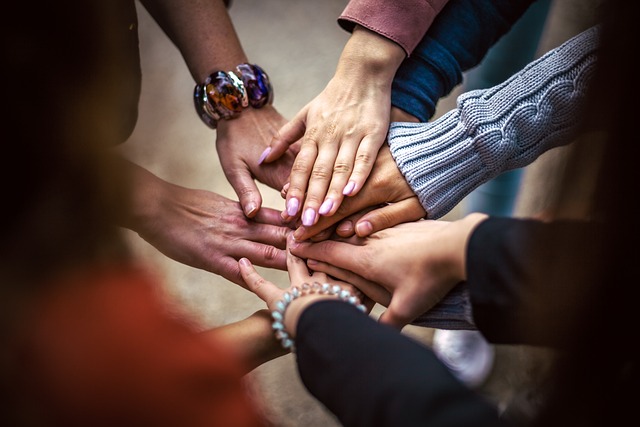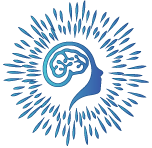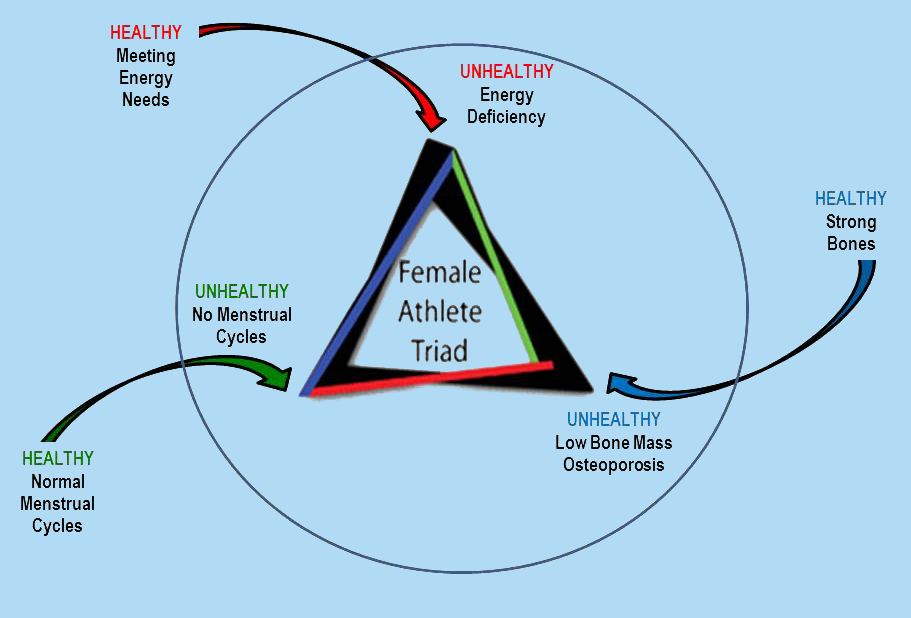Empowering Athletes: The Hidden Mental Health Challenge

By: Amanda Nichols
Categories:
Empowering Athletes: The Hidden Mental Health Challenge

Olympus Developer closes deal for $100M medical campus: A conceptual image depicting a medical campus with modern buildings and green spaces. The campus represents the recent deal closed by Olympus Developer for a $100 million investment in constructing a state-of-the-art facility. The image symbolizes the future growth and advancements in athletics.
School is out and It’s almost summer here in Clermont, FL, the renowned “Choice of Champions” where athletes from around the world gather to push their limits and strive for greatness. As news spreads about the upcoming major athletic facility announced by the AAU (Amateur Athletic Union) in Clermont, our city is set to become an even more vibrant hub for athletes. However, beyond physical prowess and achievements, there lies an often-unaddressed aspect of athletes’ lives—mental health. I hope to help shed light on some of the challenges athletes face in seeking help, the significant impact it can have on their well-being, and the importance of fostering a supportive culture within the Clermont community. Join me as we “dive” (yes, sports pun intended) into the world of mental health among athletes and explore strategies to promote overall wellness and resilience.
The Impact of Stigma on Athletes:
Athletes face unique challenges when it comes to seeking help for their mental health. The fear of being seen as weak poses a barrier that often prevents many athletes from seeking the support they need. The persistent quest for physical and mental strength in athletics can foster a toxic atmosphere in which acknowledging vulnerability is frowned upon. Athletes are frequently expected to embody strength, perseverance, and unshakable determination, leaving little opportunity for discussing mental health issues.
The pressure to maintain a strong image, both on and off the field, further exacerbates the challenge. Athletes worry that by seeking help, they will be perceived as incapable or unfit to compete. They are concerned that admitting their mental health issues could negatively impact their professional jobs, sponsorship opportunities, or camaraderie among teammates. Athletes may also encounter social consequences, such as judgment or ostracization from peers or coaches. The stigma associated with mental health in sports culture reinforces the idea that seeking treatment is a display of weakness, causing athletes to suffer silently and endure negative impacts on their well-being and performance.
Potential consequences of athletes not seeking mental health support include increased risk of burnout, diminished performance, and compromised overall well-being. Without addressing their mental health needs, athletes may experience chronic stress, anxiety, and depression, which can lead to physical and emotional exhaustion. Burnout, a state of physical, mental, and emotional depletion, can significantly hinder an athlete’s ability to perform at their best and sustain long-term success. Furthermore, untreated mental health issues can disrupt focus, concentration, and decision-making abilities, impairing an athlete’s performance and enjoyment of their sport. Neglecting mental well-being may also impact other areas of life, including relationships, academic or professional pursuits, and personal fulfillment. By understanding the potential consequences, we can recognize the urgency of creating a supportive community where athletes feel empowered to seek help and prioritize their mental health.
The Female Athlete Triad and Mental Health:
If you haven’t heard about it, the Female Athlete Triad is a complex condition that affects many female athletes, and it demands our immediate attention. It involves the interconnection between disordered eating, menstrual dysfunction, and low bone density, creating a disastrous trifecta of health concerns. Not only does the “Triad” have physical implications, but it also significantly impacts the mental well-being of athletes. The restrictive eating patterns and intense exercise associated with the Triad can contribute to a distorted body image, low self-esteem, and increased vulnerability to mental health disorders such as anxiety and depression.
I believe we as a community can advocate for a more comprehensive approach to athletes’ well-being. By fostering a culture of understanding and compassion, we can empower athletes to prioritize their mental well-being and seek the necessary help to overcome the challenges posed by the Triad or any other mental health struggle. Ultimately, addressing mental health is not only essential for individual athletes but also vital for cultivating a supportive and inclusive sports community.
How Can We Empower Athletes to Seek Support?
Athletes, like anyone else, should feel empowered to prioritize their mental well-being and take proactive steps toward seeking the assistance they need. Here are some practical tips and strategies we can use to help athletes navigate this journey:
- Foster open communication: Encourage athletes to engage in open and honest conversations about mental health. By breaking the silence and sharing experiences, they can create a safe and supportive environment where mental health concerns are acknowledged and addressed without judgment.
- Promote self-care practices: Athletes should understand the importance of self-care for their overall well-being. Encourage them to prioritize activities that promote relaxation, stress reduction, and self-reflection. This can include practicing mindfulness, engaging in hobbies, spending time in nature, or developing a consistent sleep routine. By incorporating self-care into their daily lives, athletes can enhance their resilience and emotional well-being.
- Cultivate a supportive environment: The Clermont, FL community as a whole plays a vital role in creating a supportive environment that breaks down the barriers surrounding mental health. It is important that we foster an inclusive and empathetic culture where athletes feel safe and supported in discussing their mental health challenges and successes. By working together and extending support, the community can create a network of understanding and assistance that empowers athletes to seek help without fear of judgment. A community where everyone including athletes feels valued, heard, and supported in their journey towards better mental health and well-being.
- Embrace the strength in seeking help: Remind athletes that seeking help is not a sign of weakness but an act of strength. Encourage them to recognize that reaching out for support is a courageous step towards personal growth and well-being. By seeking professional help from therapists, counselors, or other mental health specialists, athletes can access the tools and guidance needed to navigate their mental health challenges effectively.
- Challenge the stigma: Encourage athletes to be advocates for mental health within their community. By sharing their experiences and raising awareness about the importance of seeking help, athletes can help dismantle the stigma surrounding mental health. Empower them to challenge misconceptions and educate others, promoting a culture of understanding, empathy, and support.
Ultimately, athletes have the right to take control of their emotional well-being without judgment from others. By implementing these strategies and supporting one another, we can create a culture where seeking help for mental health concerns is not only accepted but encouraged. We can empower our community to prioritize their mental well-being and flourish both on and off the field.
Supporting Young Athletes
Young school-aged athletes frequently encounter unique problems in their athletic careers, and we shouldn’t ignore one key issue that might affect their mental well-being now and, in the future, – parental pressure.
While parents are likely to play the most important role in their children’s sports ambitions, undue pressure and unreasonable expectations can be harmful to young athletes. It is critical to realize the potential implications of parental pressure and to foster a supportive atmosphere that fosters these athletes’ overall well-being.
- Increased stress and anxiety: Excessive pressure from parents can lead to heightened levels of stress and anxiety in young athletes, affecting their performance and enjoyment of sports.
- Negative self-esteem and self-worth: When athletes constantly feel the need to meet their parents’ expectations, their self-esteem, and self-worth may become dependent on their sports achievements, leading to feelings of inadequacy or failure outside of sports.
- Burnout and dropout rates: Intense parental pressure can contribute to burnout and increased dropout rates among young athletes, as they may feel overwhelmed or lose their passion for the sport due to the constant pressure.
Here are some ways parents can provide the necessary support and create a positive environment for young athletes:
Set realistic expectations: It’s important to understand the significance of setting realistic expectations based on the child’s abilities and interests. Instead of solely focusing on outcomes and results, encourage your child to prioritize their enjoyment and personal growth in sports. Recognize that each child has their own unique journey, and success should be defined by personal progress and development.
Promote a balanced perspective: Supporting the child’s overall well-being is crucial. Parents can foster a balanced perspective that includes academic success, social interactions, and personal development alongside their athletic pursuits. Remind them that sports should be a positive aspect of a child’s life, enhancing their character and skills, rather than the sole measure of success.
Seek out education and resources: Parents might find that educational materials, workshops, or seminars can be immensely helpful. These resources can provide insights into the potential effects of excessive pressure and guide parents on how to support a child’s sports journey in a healthy manner.
Remember, a parent’s role is to provide a nurturing and supportive environment for your child’s athletic pursuits. By setting realistic expectations, promoting a balanced perspective, and seeking education and resources, you can empower your child to thrive in sports while enjoying a well-rounded and fulfilling life.
Conclusion
Fighting the stigma of mental health issues in athletics is a team effort that includes athletes, coaches, sports organizations, and the entire Clermont community. We can work together to establish a culture that not only appreciates physical ability but also values mental health and well-being, understanding the interdependence of these concerns. Accepting mental health as an essential component of sports performance allows athletes to fulfill their greatest potential on and off the field.

We can create a brighter and more hopeful future for athletes in Clermont and beyond by breaking down obstacles, offering assistance, and cultivating an environment of understanding and compassion. Remember, mental health is important, and by recognizing it, we can pave the way for a new era of holistic well-being.
Work it Out Counseling – Resources and Referrals for Athletes:
While the sports industry expands year after year, it leaves a path of walking wounded in its wake. Athletes who have dedicated their lives and bodies to entertaining us and building a business may face major obstacles, including:
- Traumatic Brain Injuries (TBI)
- Chronic Traumatic Encephalopathy (CTE)
- Chronic Pain
- Repetitive Stress Injuries
- Post-Traumatic Stress Disorder (PTSD)
- Anxiety
- Depression
- Identity Crisis
- Substance Abuse
Athletes must have access to a variety of tools and support networks to address their mental and physical health requirements. These difficulties involve expert guidance and assistance. Here are some helpful tools and organizations that may assist and guide athletes dealing with these issues:
Christel Mamaril
Work It Out Counseling
Licensed Mental Health Counselor
M.S. in Sport Psychology and Exercise Performance Enhancement – Barry University
Greg Nichols
Work It Out Counseling
Licensed Massage Therapist MA100421
Sports Massage, Trigger Point Treatment, Myofascial Release, Muscle Energy Techniques. – 2009 Cortiva Institute (Desert Institute of Healing Arts)
Dr. Aaron Pazik
Located inside of Work It Out Counseling
Chiropractic Physician
CH12946
Active Release Technique Chiropractic Adjustments – D.C. Palmer College of Chiropractic
Dr. Dustin Vaughan
Precision Integrative Medicine
DACM, PMD, Dipl.OM, AP
Precision Integrative is dedicated to optimizing sports performance and promoting recovery through specialized therapies and personalized care.
Dr. Janell Royster
Semper Motis, LLC
Licensed Mental Health Counselor
SOF Missions
Serving Veteran Athletes
Resiliency Clinic Program
Florida Sports Injury and Orthopedic Institute
PT and surgical services for Athletic injuries, arthritis pain, ACL reconstruction, arthroscopic orthopedic surgery, knee surgery, torn ACLs & MCLs, hip replacements, joint pain, muscle strains, and other injuries.
Athletes for Care
Athletes for Care empowers athletes by providing support, resources, and advocacy for their holistic well-being.
National Training Center
USANTC is dedicated to optimizing athletic performance through cutting-edge training, research, and state-of-the-art facilities.
Central Florida Dreamplex
CFLDreamPlex is a premier sports facility offering top-notch training and resources for athletes of all levels.
We can help athletes navigate their mental health difficulties and find pathways to recovery and growth if we are aware of these options. Remember that asking for assistance is a show of strength, and there are devoted specialists and organizations ready to assist athletes on their path to well-being and resilience.

